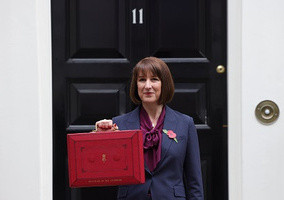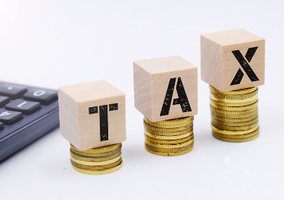The government has published plans to stop charities from obtaining tax reliefs “in ways that aren’t intended”, which it expects to generate £125m for the state by 2029-30.
Last year, the government opened a consultation on charities tax compliance designed to help tackle non-compliance and protect the sector’s integrity.
At the time, it said “most charities operate within the current guidelines” but that there was “a small group of charities who obtain reliefs in ways that aren’t intended”.
In the consultation outcome, published yesterday, the government said it had “listened to the concerns” raised by respondents and will make “incremental changes” in four areas.
It estimated that the changes, which will be introduced from April 2026, will bring in £20m for the government in 2026-27 and £35m every year thereafter until 2030.
‘Tainted’ charitable donations and qualifying investments
The consultation, which received 33 responses, looked at “reasonable and proportionate changes” to tax reliefs in four areas that do not work as the government intended.
These included preventing misuse of charitable investment rules, addressing gaps in non-charitable expenditure rules and introducing sanctions for charities that do not meet their filing and payment obligations.
It also considered “tainted” charity donation rules, which apply when donors enter into arrangements to obtain financial advantage from a charity.
In its response, the government said current tainted donation rules are “too difficult to apply to certain instances of abusive behaviour including where individuals make large donations to charity and derive significant financial benefits by entering into arrangements linked to their donation”.
To address this, it will legislate by lowering the bar for challenging a transaction that is currently set by “financial advantage” and replace the motive test with an outcome test.
The government said that most types of approved charity investments tend to be made for the benefit of a charity, “but has seen some instances where investments are being made through a charity to benefit others”.
It will therefore introduce legislation to ensure that all charitable investments “must be for the benefit of the charity and not for the avoidance of tax”.
Non-charitable expenditure rules and payment obligations
Currently, there is a tax charge on attributable income, which excludes legacy income, when used for non-charitable expenditure.
The government accepted that it might be disproportionate to make all income chargeable income as some of this comes from sources that are not entitled to any tax relief.
Instead, it will legislate to add legacies to the non-charitable expenditure rules.
The government said that some charities “persistently fail to comply” when HMRC sends them a notice to file a return but still claim tax reliefs such as gift aid.
It proposed to amend the fit and proper persons test so that if a charity manager persistently fails to comply with their organisation’s tax obligations such as timely filing returns, they will fail the management condition.
CTG ‘optimistic that appropriate measures will be put in place’
Charity Tax Group (CTG) chair Richard Bray told Civil Society: “We support the government in its attempts to ensure that charity tax reliefs aren’t subject to abuse.
“The abuse benefits no one but the criminals. So, we’ll work with HMRC as it seeks to reduce the improper use of charity tax reliefs.
“It’s appropriate that these changes won’t be introduced overnight. Many of the measures are likely to be technically complex and will require measured consideration.
“This will give CTG the chance to work with HMRC to ensure that the changes are properly thought through and don’t unfairly prejudice the work of the vast majority of law-abiding charities.
“We have already worked closely with HMRC on the journey so far and are optimistic that appropriate measures will be put in place.”
The government said it will update guidance “to reflect the new rules, define terms and explain what is needed from charities and donors in order to comply”.
“A short-term education programme and comms campaign will be undertaken where needed,” it said.
“The government will also engage with key industry stakeholders on updates to guidance and to assist with communicating the new measures.”
Draft legislation for consultation is expected to be published next year before the legislation is introduced later in 2025.
Related articles











